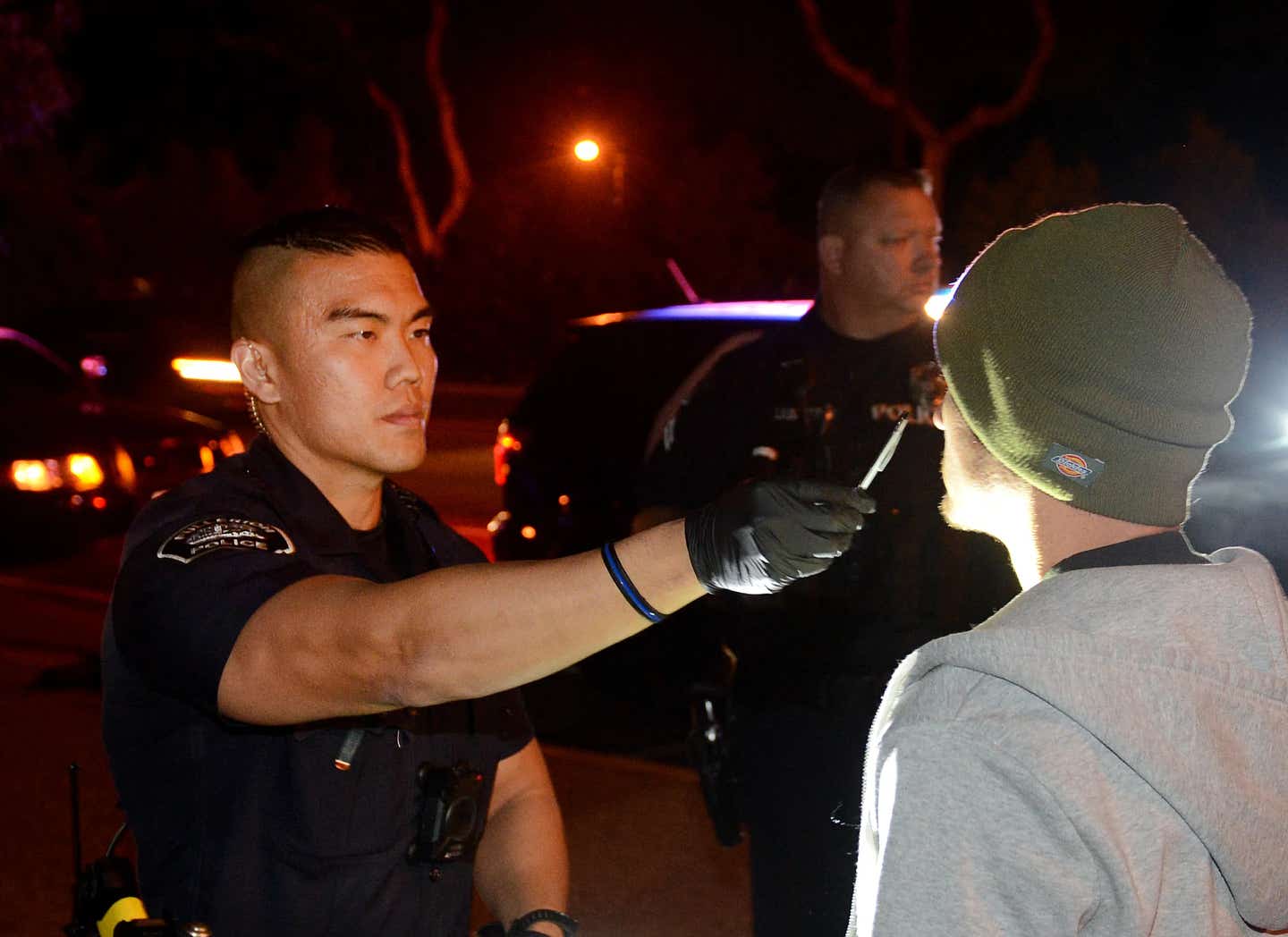Can police actually identify drivers high on cannabis?
Cannabis is known to impair critical faculties such as reaction time, decision-making, coordination, and perception.

[Aug 3, 2023: Staff Writer, The Brighter Side of News]
Cannabis is known to impair critical faculties such as reaction time, decision-making, coordination, and perception. (CREDIT: Creative Commons)
In today’s world, where the winds of cannabis legalization are sweeping nations, a pertinent issue rises: road safety. The consequences of driving under the influence of cannabis have become an urgent concern, especially given the sharp increase in drug-related accidents on the roads of California.
Cannabis is known to impair critical faculties such as reaction time, decision-making, coordination, and perception. All these faculties are indispensable for safe driving. Recent statistics have sounded alarms, as California has seen a staggering 62% spike in fatal crashes due to drug-related impairments over the last three years.
The complexities arise when determining the exact role of tetrahydrocannabinol (THC), the psychoactive component in cannabis. Unlike the well-established relationship between blood alcohol concentrations and driving impairment, THC blood concentrations don’t offer a linear correlation with driving capabilities.
In the absence of concrete THC concentration benchmarks, law enforcement typically depends on field sobriety tests. These tests, however, were designed with alcohol impairment in mind, raising questions about their effectiveness in the context of cannabis.
Related Stories:
A recent groundbreaking study, published in JAMA Psychiatry, aimed to address this ambiguity. Undertaken by the University of California San Diego Center for Medicinal Cannabis Research, the study was a rigorous double-blind, placebo-controlled randomized clinical trial designed to gauge the accuracy of field sobriety tests for THC-induced impairment.
The study's principal author, Thomas Marcotte, PhD, professor of psychiatry at UC San Diego School of Medicine, remarked, “Driving is a complex task that requires intact attention and motor skills to stay safe. While cannabis can be impairing, the effects vary for each individual. This study is an important step towards ensuring evaluations of impairment are effective and unbiased.”
For the study, 184 adult cannabis users aged between 21 and 55 were divided into two groups. One group (121 participants) was given THC cannabis cigarettes, while the other (63 participants) received placebo cannabis cigarettes.
Cannabis is the illicit drug most frequently found in the blood of drivers involved in motor vehicle crashes, including fatal ones. (CREDIT: Elsa Olofsson)
Following consumption, participants reported their levels of intoxication, with the THC group indicating a median highness level of 64 on a 0 to 100 scale.
Trained law enforcement officers, blinded to the study's groups, then conducted field sobriety tests, including the Walk and Turn, One Leg Stand, Finger to Nose, and others. These evaluations spanned across four time intervals after consumption.
Interestingly, officers were more likely to classify participants from the THC group as impaired compared to the placebo group. However, even among the placebo group, almost half were labeled as impaired one hour after consumption. Irrespective of the participant's actual group, officers believed that 99% of those who failed the tests had consumed THC.
Officer Classifications of Field Sobriety Test (FST) Impairment for the Δ9-Tetrahydrocannabinol (THC) and Placebo Groups Over the 4 Time Points. (CREDIT: JAMA Network)
Parallelly, a driving simulation showed significant associations with the results of selected sobriety tests, a factor unknown to the evaluating officers.
While the study did indicate that sobriety tests might have some sensitivity towards THC impairment, the overlap between THC and placebo group results suggests that these tests might not be enough on their own.
Marcotte emphasized, “Field sobriety tests are useful additions to overall evaluations of drivers, but are not accurate enough on their own to determine THC impairment. We need new, effective measures for identifying cannabis impairment to ensure the safety of all drivers on the road.”
To further this initiative, UC San Diego Center for Medicinal Cannabis Research has partnered with both the California Department of Motor Vehicles and the California Highway Patrol. Their next study, slated to begin in late summer 2023, will focus on exploring various methods to detect cannabis-impaired driving. The ambitious project aims to recruit 300 participants.
The co-authors of this pioneering research include notable names such as David J. Grelotti, Kyle F. Mastropietro, and others from UC San Diego, as well as Marilyn A. Huestis from Thomas Jefferson University.
Importantly, this research has been made possible due to funding from the State of California via Assembly Bill 266, agreement 907. As countries navigate the implications of cannabis legalization, such studies are crucial in framing legislation and guidelines to ensure road safety in the age of cannabis.
Note: Materials provided above by The Brighter Side of News. Content may be edited for style and length.
Like these kind of feel good stories? Get the Brighter Side of News' newsletter.
Joseph Shavit
Head Science News Writer | Communicating Innovation & Discovery
Based in Los Angeles, Joseph Shavit is an accomplished science journalist, head science news writer and co-founder at The Brighter Side of News, where he translates cutting-edge discoveries into compelling stories for a broad audience. With a strong background spanning science, business, product management, media leadership, and entrepreneurship, Joseph brings a unique perspective to science communication. His expertise allows him to uncover the intersection of technological advancements and market potential, shedding light on how groundbreaking research evolves into transformative products and industries.



